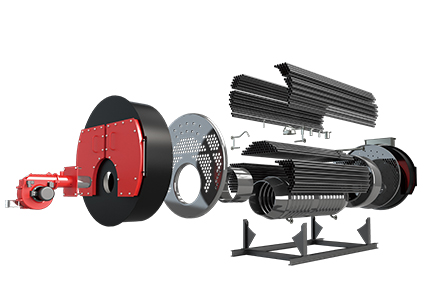Top Rated Coal Boilers for Efficient Heating Solutions and Sustainable Energy Production
The Best Coal Boiler A Comprehensive Guide
In recent years, coal boilers have gained significant attention due to their efficiency and reliability in heating residential and commercial spaces. Despite the environmental concerns surrounding coal, advancements in technology have led to the production of modern coal boilers that minimize emissions and enhance performance. This article delves into the intricacies of coal boilers, helping consumers choose the best option for their heating needs.
Understanding Coal Boilers
Coal boilers are designed to burn coal as their primary source of energy, converting it into heat. These systems are categorized mainly into stoker-fired and fluidized bed boilers. Stoker-fired boilers use mechanical means to feed coal into the furnace, while fluidized bed boilers provide a more controlled combustion environment, allowing for better efficiency and lower emissions.
One of the primary advantages of coal boilers is their ability to generate a substantial amount of heat, making them ideal for large-scale heating applications. They are particularly prevalent in regions where coal is abundant and cost-effective. Furthermore, modern coal boilers often come equipped with advanced technologies such as automated fuel feeding and ash removal systems, which optimize their operation and reduce the maintenance burden on users.
Key Features to Consider
When selecting the best coal boiler, several key features should be evaluated
1. Efficiency The efficiency of a coal boiler is paramount. Higher efficiency means more heat output for the same amount of coal consumed. Look for models that boast efficiencies above 75%, as these are more economical and environmentally friendly.
2. Emissions Today’s coal boilers must adhere to stringent environmental regulations. Many modern systems are designed to minimize harmful emissions, such as sulfur dioxide (SO2) and particulate matter. Opt for boilers that are certified for low emissions to ensure compliance with local regulations.
best coal boiler

3. Size and Capacity The size of the boiler should correspond to the heating requirements of your space. An oversized boiler can lead to inefficiencies, while an undersized unit may struggle to meet heating demands. Calculate the BTU (British Thermal Unit) requirements of your space to find the right capacity.
4. Durability and Build Quality A coal boiler represents a significant investment, so it is essential to consider the construction materials and design quality. Look for boilers made of high-grade steel or cast iron, which can withstand the rigors of high-temperature operations.
5. User-Friendliness The ease of operation is another critical factor. Modern coal boilers often come with digital controls that allow for precise temperature regulation and monitoring. User-friendly interfaces can streamline the heating process and reduce the learning curve for new users.
Popular Brands and Models
Several brands are prominent in the coal boiler market. Companies such as EFM, Axeman-Anderson, and Harman are known for manufacturing reliable and efficient coal boilers. Each brand offers a range of models tailored for various applications, from residential heating to large commercial spaces.
For instance, the EFM Coal Gun is well-regarded for its high efficiency and automated features, ensuring consistent heating with minimal user intervention. Similarly, the Axeman-Anderson 130 offers robust performance and is favored for its durability.
Conclusion
Choosing the best coal boiler requires careful consideration of efficiency, emissions, size, durability, and user-friendliness. While the environmental impact of coal remains a concern, modern coal boilers continue to evolve, offering viable heating solutions for many consumers. By prioritizing quality and innovation, homeowners and businesses can enjoy the benefits of coal heating while being mindful of their environmental footprint. As always, consulting with a heating professional can provide valuable insights tailored to your specific needs, ensuring you make the most informed decision possible.
-
Top Industrial Boiler Contractors Supplier & Factory Quality Products & ServicesNewsJun.10,2025
-
Panasonic Hot Water Boiler - Reliable & Energy Efficient Heating SolutionNewsJun.10,2025
-
Pennco Steam Boilers High-Efficiency & Durable SolutionsNewsJun.10,2025
-
Industrial Boiler & Mechanical Solutions Efficient Industrial Heating SystemsNewsJun.10,2025
-
Panasonic Hot Water Boiler - Energy-Efficient, Reliable Heat SolutionNewsJun.10,2025
-
Premium Power Plant Steam Boilers High Efficiency & ReliabilityNewsJun.09,2025

